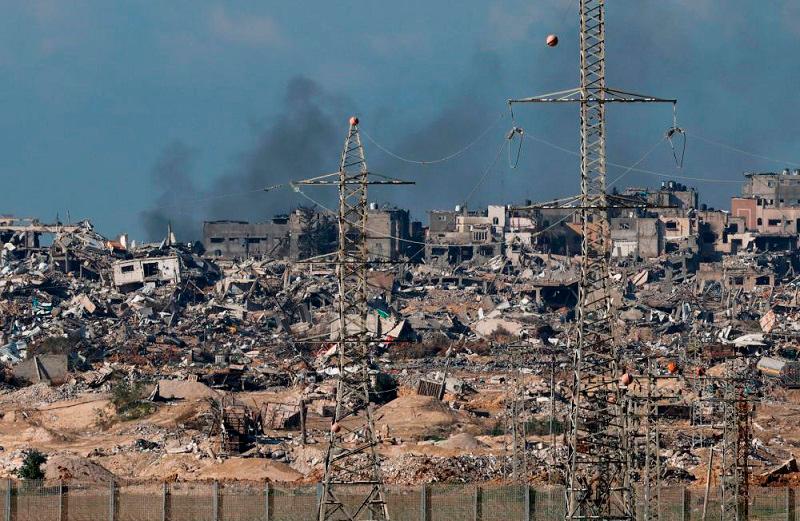IMPERIALISM continues to dominate the world. Globalisation is losing to some of its anti-theses, but imperialism still rules, increasingly by law, albeit in changing even contradictory ways.
Hence, we live in challenging times. It is often difficult to see the main challenges we face as there seem to be many.
Also, the new or the unusual gains far more attention than what appears commonplace.
Power and empire
Our histories and cultures are often quite different despite our common, but varied experiences of foreign domination, even rule.
Such power involves varied socioeconomic and political relations, involving governance and even the rule of law.
Our world has seen empires and imperialism for over two millennia, at least from before the time of Jesus Christ in Palestine, who had to deal with the satraps of the Roman empire then.
Half a millennium ago, when the Spanish conquistadors first reached the Philippines via the Pacific in 1521, the people of Mactan, led by datu (chief) Lapu-Lapu, resisted.
Magellan had burnt down their villages after they ignored his demands for tribute as well as accepting his god and king.
Empires evolve
Imperialism has changed very significantly over time and will continue to change.
It has combined in new ways with capital, capitalism and existing socio-economic relations, especially after the mid-19th century.
A century and a half ago, at least two people from Asia began to criticise and oppose the emerging new imperialism.
Sayyid Jamaluddin al-Afghani, a political activist and an Islamic ideologist, developed an Islamic critique of Western imperialism.
Dadabhai Naoroji, an Indian who became a Liberal Member of the English Parliament, was the other.
Both analysed the impacts of imperialism in their cultural idioms, condemning injustice and “drainage” of the economic surplus.
They wrote decades before radical Western writers such as the English Liberal John Hobson and Social Democrats such as Rudolf Hilferding, Rosa Luxemburg and Vladimir Lenin.
All linked the new imperialism to ongoing capitalist transformation.
Imperial contradictions
However, successful resistance to imperialism does not overcome all injustices and may even worsen some.
The US War of Independence against British colonialism strengthened American slaveowners and their business interests.
From thirteen colonies, the US expanded south and west, typically at the expense of indigenous communities, delaying inevitable pressure to go beyond the continent.
Anticipated by the Monroe Doctrine in the early 19th century, US expansion abroad led to the Spanish-American War at its end.
Imperialist expansion abroad helped resolve some, but not all problems of capital accumulation.
In the early 20th century, the Austro-Hungarian and Ottoman empires – both invoking religion – ended with help from rising nationalism.
Meanwhile, the Berlin Congress had mitigated inter-European imperial rivalries in Africa.
Three decades later, the Treaty of Versailles purported to end the so-called First World War, mainly among rival European imperialists.
But, as Lenin and Keynes both observed – albeit somewhat differently – its inter-imperialist roots and Versailles’ terms only “kicked the can down the road”, thus sowing the seeds for the Second World War.
China had contributed immensely to the First World War effort.
But instead of returning the Shantung peninsula to China, Versailles gave it to Japan after Germany surrendered it.
This triggered widespread Chinese resentment of the West, triggering the 1919 May Fourth movement.
Imperialism without colonies
Recognising how rival colonial interests threatened the future of capitalism and imperialist interests, visionary US President Franklin Delano Roosevelt envisaged a new post-war world order, saving imperialism through decolonisation.
This led to the birth of the United Nations and related multilateral institutions, including the International Monetary Fund and the International Bank for Reconstruction and Development, somewhat anticipating the Marshall Plan.
Now, with capitalism divided and weaker in some ways, but stronger militarily, modes of domination are still changing with significant consequences.
For instance, until the 21st century, there was no explicit US African Command (Africom) to protect all Western and not only European interests there.
Another of former US President Barack Obama’s “achievements” after receiving the Nobel Peace Prize was overthrowing the Libyan regime.
Despite giving up his nuclear programme at the request of the West, its leader Muammar Gaddafi, generally acknowledged as key to establishing the African Union, was humiliatingly murdered.
The significance of Gaza
The world is constantly being reshaped by imperialism and developing countries need to continually update their understanding of its features.
Such power remains the main, but not the only common challenge we face today, especially in the Global South.
Today, the tragedy of Gaza is the most brutal face of Western imperialism, historical and contemporary.
It is not disputed that European failure to resolve its “Jewish problem” from the 19th century contributed directly to the Nazi Holocaust.
And as Israel’s first Prime Minister David Ben-Gurion noted, “If I were an Arab leader, I would never sign an agreement with Israel. It is normal, we have taken their country. It is true, God promised it to us but how could that interest them? Our God is not theirs.
“There has been anti-Semitism, the Nazis, Hitler, Auschwitz but was that their fault? They see but one thing: We have come and we have stolen their country. Why would they accept that?”
Ben-Gurion’s acknowledgement of the implications of creating Israel underscores the legitimacy of the ongoing Palestinian resistance to Israeli settler colonialism, fascism and apartheid, specifically its latest brutal massacre in Gaza.
Explicit Western support for Israel’s genocidal ethnic cleansing reminds the world that those who claim moral legitimacy from having been victims before are more than capable of perpetrating the same, if not worse, on others.
The Israeli occupation of Palestine is a cruel caricature and reminder of the threat to humanity, especially in the Global South, of one hard face of imperial power, loyally supported by the soft power of manufactured consent, digitised or otherwise. – IPS









